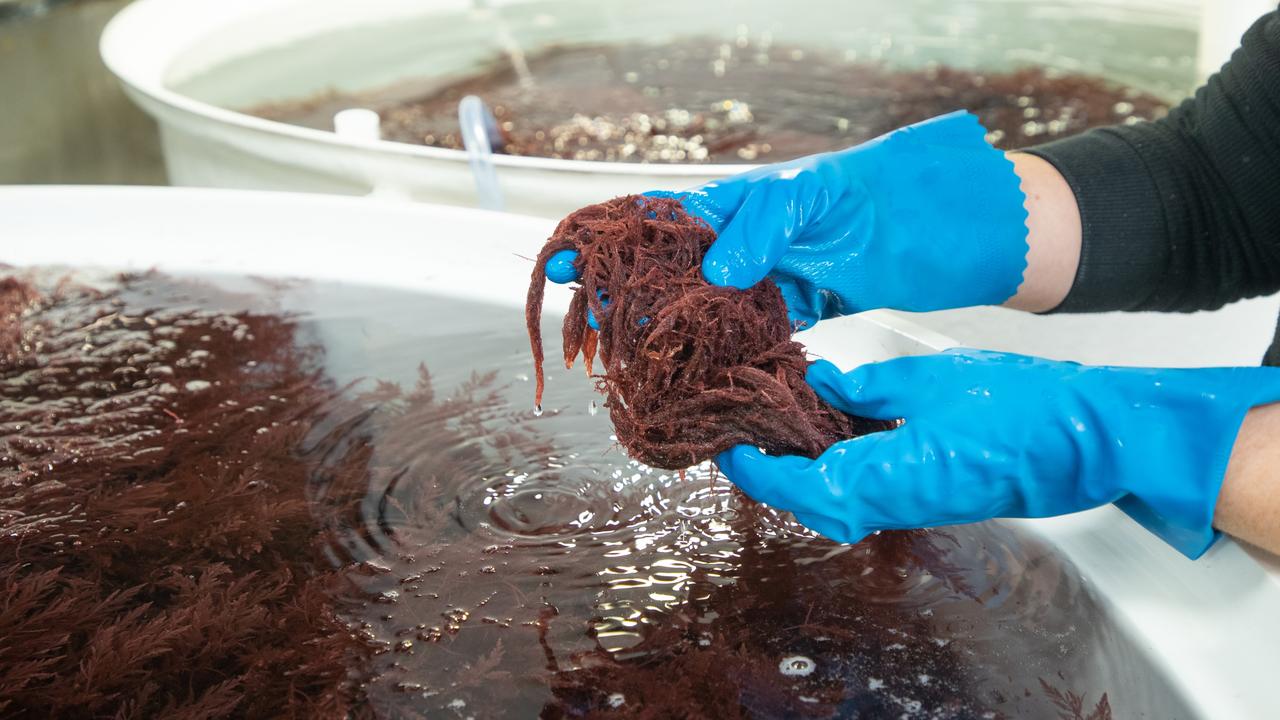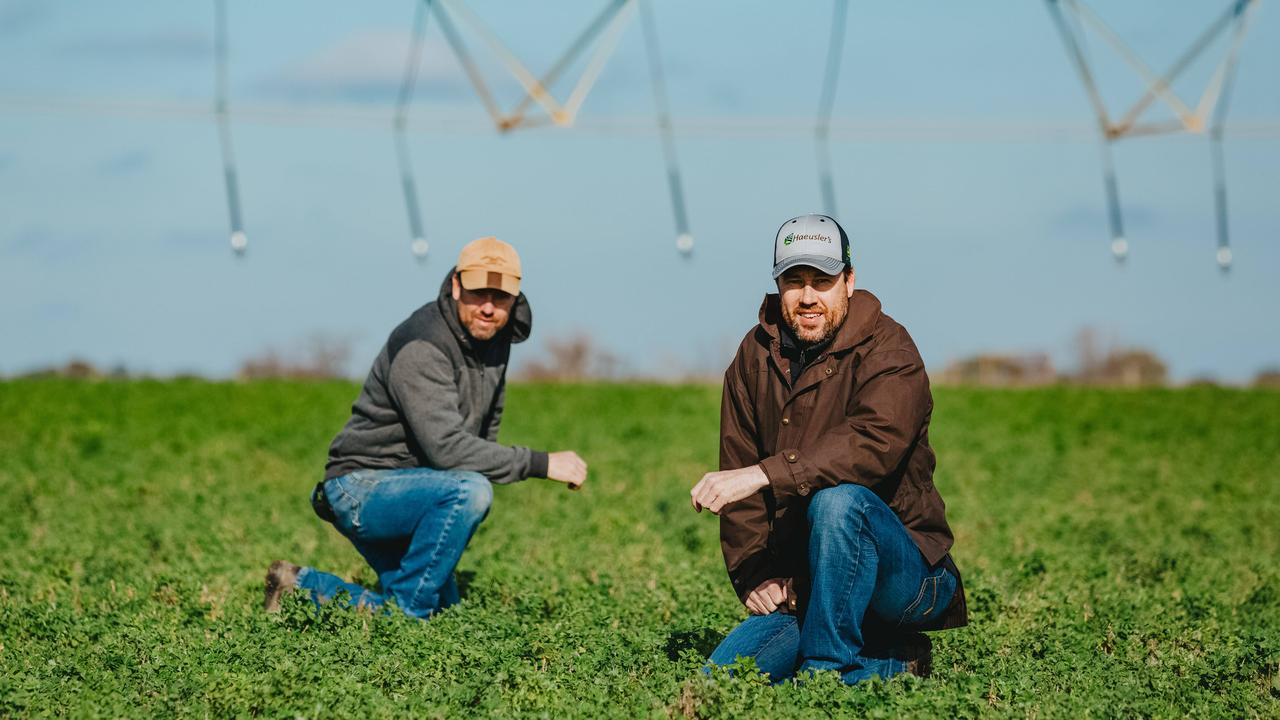The Rook Blooms keep things farm and farmer friendly
HAYLEY Connor’s tiny 12-bed flower farm is satisfying demand for locally grown, bee-friendly, chemical-free blooms. SARAH HUDSON reports.

THERE’S a growing flower power revolution.
And it’s most likely coming to a farm near you.
Across Victoria micro-farms are sprouting, dedicated to producing bee-friendly, no- or low-chemical botanicals for the local cut-flower industry.
Hayley Connor is one such grower.
For the past two years Hayley has run The Rook Blooms on the four-hectare Bullengarook property she shares with her husband, Daniel, and two children. In the first year she planted four flower beds and expanded to 12 beds this summer, supplying florists in a 40km radius of the Macedon Ranges.
The 36-year-old worked in the airfreight industry before starting the blooming business.
“When I worked in freight I’d see orchids from Singapore flown in, wrapped in multiple layers of plastic and I thought they were perhaps special, but I didn’t think much more of it,” Hayley says. “Once I started growing slow flowers I was shocked to learn how many flowers are imported, how important it is to support local growers, and, like we do with food now, grow flowers sustainably.”
Hayley is a member of Consortium Botanicus, a website for growers and consumers that includes a database of more than 300 micro-flower farmers across the nation, all of which are “100 per cent grown not flown”, and which advocates holistic farming methods.
The consortium state: “We are inspired by and work mindfully with the seasons. We grow quality not quantity.”

Hayley says growing and buying flowers from a small, local, bee-friendly farm makes sense in so many ways, from flexible working hours to supplying a hungry market.
Initially, Hayley and Daniel bought the farm as a lifestyle property, Hayley dabbling in small-scale flower growing in 2017 as a keen green thumb with basic horticultural knowledge.
“I started with four beds but will have 12 this summer because the demand just keeps growing,” she says.
“I can see the business expanding further, maybe triple next year, but it will be slow and steady, investing in and expanding infrastructure as the demand grows.
“It’s now grown to the point I won’t have to return to an office job, but can be stay-at-home, work on the flowers in between looking after my children.”
She adds there’s a ready market for slow flowers in her region. The slow flower movement is about growing locally and connecting customers with the farmers who produce their flowers.
“Florists in this area are really keen to buy from local growers. It’s a point of difference for them and it’s what brides are asking for.
“Florists know what’s on trend and so tell me what they need and I grow it for them.”
Hayley says the decision to farm free of chemicals was not radical, but a simple “no-brainer”.
“It’s just a personal choice,” she says. “In the same way I’m conscious of where my food comes from, I don’t want to use chemicals in my work.”
The Rook Blooms has flower beds ranging from 15 metres to 30 metres on a small slice of the four-hectare property.
Ranunculuses are the first to bloom, with corms planted in May, flowering from October to December, harvesting 10 flowers each corm in the season.
Through summer, the main crop is dahlias, with 50 tubers planted in 2017. These multiplied and were dug up and divided out to 300 this year.

Dahlia tubers are planted in early November and flower from January to the end of April, with flowers picked on average every second day.
“The more you pick, the more they re-grow, so they’re a great flower in that they don’t have a single cut,” Hayley says.
“This year I’ve planted a lot of burgundy and ‘cafe au lait’ (creamy peach) coloured dahlias, which were hard to source, but it’s what florists have requested.”
Hayley grows smaller quantities of annuals, including Queen Anne’s lace, zinnia, scabiosa, sweet peas, amaranthus, cosmos and strawflowers.
These are all grown from seed, starting in mid-September in trays under lights in Hayley’s house before they are moved outside to a small greenhouse, then planted out in November.
Given the Bullengarook soil is clay, Hayley and Daniel improve it with compost and cow manure to create garden beds.
They have used mushroom compost in the past but are now making their own compost from garden waste.
Daniel, a plumber, and Hayley’s brother, who works on their uncle’s orchard in Shepparton, have applied drip tape irrigation in the beds, accessing bore water.
Throughout the growing season two liquid organic fertilisers are applied about once a fortnight, while an organic fungicide – potassium bicarbonate – is used every two weeks to avoid powdery mildew in summer.

No other inputs are applied, with all weeds picked by hand and no pesticides required.
The flowers have natural enemies in cockatoos, ducks and kangaroos, so Hayley uses hooped netting to keep them out.
In addition, frost can damage the blooms, especially ranunculus, so one garden bed has a caterpillar tunnel – a low hooped tunnel covered by soft cloth – which Hayley lifts every day to let sunshine in.
SHE sells by the bucket or bunch to florists, catering and wedding event planners, who collect from the property or receive deliveries.
The only online presence for The Rook Blooms is Instagram, as Hayley doesn’t want to compete with florists by selling online.
She says the benefits of growing sustainable flowers on a small plot were underscored when she joined Consortium Botanicus in early 2018, connecting with other growers and florists.
Each member of the consortium must fill out a detailed questionnaire in order to be accepted, with Consortium Botanicus providing a forum to share knowledge.
“I think there’s more power if we work together,” she says. “I don’t see that we compete ... But the group is also about making the consumer aware of the provenance of flowers.
“I think there will always be a need for larger growers and imports, but it’s just about getting the message out to look for flowers that are in season and local.”

FARM FILE
The Rook Blooms
Hayley Connor runs a small-scale cut-flower farm in the Macedon Ranges. She grows ranunculus, dahlias, Queen Anne’s lace, zinnia, scabiosa, sweet peas, amaranthus, cosmos and strawflowers, selling by the bucket or bunch to florists, caterers and wedding event planners.



